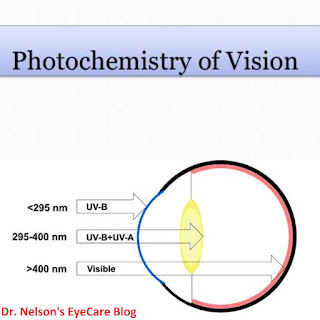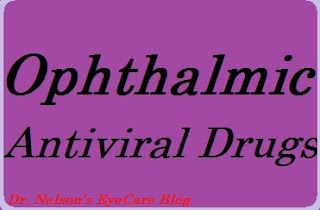Prospective Interns/House Officers
Association of Nigeria
(PIHAN)
A proposal for the proper regulation of Medical
Internship/Housemanship
Preamble
Critical challenges faced by Prospective Interns/House
Officers
There
is an ongoing crisis in the health sector with regards to Medical
Internship/Housemanship. The lopsided method occasioned by the irregularities
in the process of placement has plagued its prospective interns/house officers
over the years. The mandatory internship/housemanship program is an extension
of our training, where we acquire more comprehensive clinical training, given
the fact that we are dealing with the most sacred form of life, the human life.
As such, it has become sacrosanct for us in the health sector to be efficient and competent in all ramifications.
As such, it has become sacrosanct for us in the health sector to be efficient and competent in all ramifications.
Having
said that, this mandatory one year program has virtually become a stumbling
block to prospective interns/house officers, as there are no well structured
and organized modalities put in place for easy access to securing placement
ergo the unbearable scenario where a graduate from Medicine, Pharmacy,
Medical Laboratory Science, Dentistry, Radiography, Physiotherapy, Nutrition
and Dietetics, and Optometry after a period of five or six years of
University education, remains at home for additional two to three years or more
pending when him/her is able to secure placement in any of the accredited
hospitals. This unnecessary delay occasioned by the irregularities in the
process is uncalled for and grossly unacceptable.
More worrisome is the trending
development, in which University teaching hospitals, Federal Medical Centers,
National hospital as well as State and Central/Specialist hospitals accredited
for training interns/House officers are now in the habit of selecting just a
few candidates out of the total quota approved for that center, the remaining
slots not been accounted for. As if all this were not enough, these hospitals
also sell their forms for as high as N5000, to a vast population of
eligible candidates, only to appoint less than ten percent of the applicants
that purchase this form, leaving the larger number of the candidates helpless.
Prospective interns/house officers
continuously risk their lives traveling Nationwide in a bid to attend various
interviews across the six geo-political zones of the Nation. Needless to say is
the financial burden upon the non-occupationally engaged candidates which
includes the cost of transportation, hotel bills and the likes. More saddening
is the negative outcome of the supposed interview, in which the candidates are
disappointed with little or no hope of securing placement. Obviously, it is not
a question of a candidate’s incompetency or inability to pass the said
interview, however, the disappointment can be attributed to multiple factors
such as:
I.
the politics that is
inherent in the hospital management board,
II.
The small size
capacity of most of the hospital's Laboratory, which for instance, may not be
able to cater for or contain all the intern Medical Laboratory scientist, and
so many other unforeseen factors.
Unarguably, this
appear to be tantamount to exploiting the helpless candidates financially, who
are in dire need of securing placement for the mandatory one year
internship/housemanship program which precedes the National Youth Service Corps
(NYSC).
Furthermore, by virtue of this
delay in securing placement and the irregularities in the process, prospective
interns/house officers are going through hard times, wasting at home, getting
weary and are seen like people who never actually graduated from school since
they are not going to service immediately as this is what is obtainable among
fresh university graduates.
We wish to strongly express our dissatisfaction in the process of
appointing interns/house officers adopted by most hospitals in Nigeria, as this
piece of proposal is driven by both real life experiences by members and the
undue hardship in which we are subjected to before barely securing placement.
Prospective
interns/house officers under the aegis of Prospective Interns/House Officers
association of Nigerian (PIHAN) are therefore humbly requesting for the Federal
government, National University Commission (NUC) and the various governing
council bodies to urgently step into the situation and resolve this crisis by
regulating internship/housemanship for the entire Medical graduates in Nigeria.
Haven highlighted the enormous challenges bedeviling the PIHANITES, below
are our few recommendations to aid in the regulation of the entire process.
Recommendations
1. The
need for the proper regulation of the
mandatory one year Internship/housemanship program like the National Youth Service Corps,
warrant a proactive body to be
constituted and be charged with the duty of posting medical graduates to accredited
hospitals nationwide. This can be achieved through the concerted efforts and
cooperation of Federal government, National University Commission and all
governing council bodies of the various disciplines.
2. The
said body above will work closely with the various governing council
bodies/Universities to ensure the Universities adhere strictly to the
regulations of the council bodies as regards intake into the various
disciplines, so as to control the output which should be a function of the
number and available accredited hospitals.
3. The
examination administered to prospective interns/house officers who have been so
provisionally licensed by their council body is not necessary. Posting of
prospective interns/house officers will be of best interest. Such that once
posted, implies automatic appointment.
4. By
virtue of number three above, professional/final professional exams in all
Universities across the Nation for all disciplines should receive maximum
supervision from council bodies.
5. The
maximum carrying capacity of each accredited hospital Nationwide should be on
record to facilitate posting.
6. By
virtue of number five above, where appropriate, all teaching hospitals should
be so directed to absorb all her prospective interns/house officers with spill
over posted to other non-teaching accredited hospitals.
7. Final
degree exams in medical schools nationwide should be administered quarterly and
within a certain period in a bid to synchronize the graduation of prospective
house officers and appropriate placement within that period.
8. If
possible, the salary structure/welfare packages for interns in all hospitals
should be synchronized to reduce the monopoly of interest in certain hospitals.
9. The
governing council can also increase the number of accredited hospitals for internship
placements so as to cater for the teaming populace of medical graduates.
Source: Nairaland














